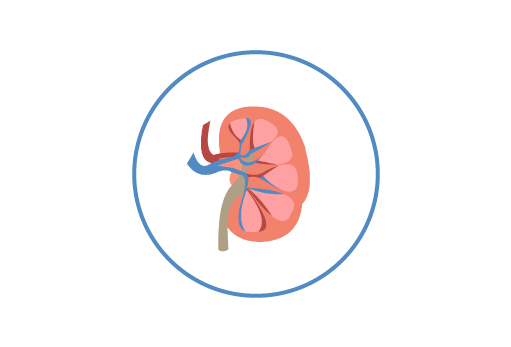Kidney Function Monitoring and Alerts
To monitor a patient’s kidney function during the hospital stay, our Arden-Syntax-based medical content package Kidney Function Monitoring & Alerts uses the glomerular filtration rate (GFR), creatinine, urea, blood-urea-nitrogen (BUN), and potassium levels to indicate several stages of reduced kidney function and alerts for pathological levels and trends. The package can be used with our ArdenSuite software and has been shipped to our customers.
We offer several application-ready medical content packages that can be used with the ArdenSuite. They target different issues in clinical routine and can be—for example—connected to the hospital’s EMR system. Results can be displayed in an area of the EMR’s user interface.
The Kidney Function Monitoring & Alerts package is part of our Clinical Alerts and checks and monitors a patient’s kidney function during the hospital stay based on the glomerular filtration rate (GFR) as well as creatinine, urea, blood-urea-nitrogen (BUN), and potassium levels. Alerts are generated, if the GFR indicates reduced kidney function (in 5 steps from possible reduction to kidney failure). If there is no GFR available, the package works with creatinine instead. The system alerts if creatinine levels are increased and/or have risen considerably. If the last known GFR or creatinine value was pathological, a notification to request new tests is issued after 7 days with no new incoming test results or upon discharge. The package also notifies of severely increased BUN or urea levels, pointing out a possible indication for dialysis. Furthermore, if potassium levels haven’t been in the normal range, the package checks for creatinine levels or suggests a creatinine test. Creatinine level progression is then monitored and a trend prediction calculated. There is an alert if the creatinine levels are expected to rise pathologically within three days.
If you are interested in our medical content packages, contact us today.
Published on August 18, 2020
Receive the latest insights, product news, and updates from Medexter's ongoing work in clinical decision support & AI.
